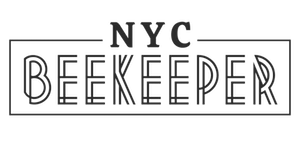Are you interested in becoming a beekeeper? It’s an exciting hobby that can also benefit the environment by supporting pollinators. But before you jump in, there are some essential things to know. In this guide, we’ll cover everything a beginner beekeeper needs to know to get started.
Do Your Research
Beekeeping is a fascinating and rewarding hobby, but it’s important to do your research before starting your own beehive. Here are some tips to help you get started:
- Research different types of equipment available for purchase. There are many different types, each with unique characteristics and needs. They also have their own advantages and disadvantages.
- Learn about methods of keeping bees. There are many different methods of keeping bees, from traditional beekeeping to more modern approaches like top bar beekeeping or natural beekeeping. Each method has its own pros and cons, so it’s important to research them all before deciding which one is right for you.
- Research preventative measures against potential problems like infestations or diseases. Bees can be susceptible to a variety of pests and diseases, so it’s important to learn how to prevent these problems from occurring in the first place.
Researching is only as good as your sources. There are many great beekeeping books available (see my post about my favs here) and you can find a vast wealth of knowledge available online in the form of articles and videos. You can check out some of my favorite, and reputable Youtube Channels here.
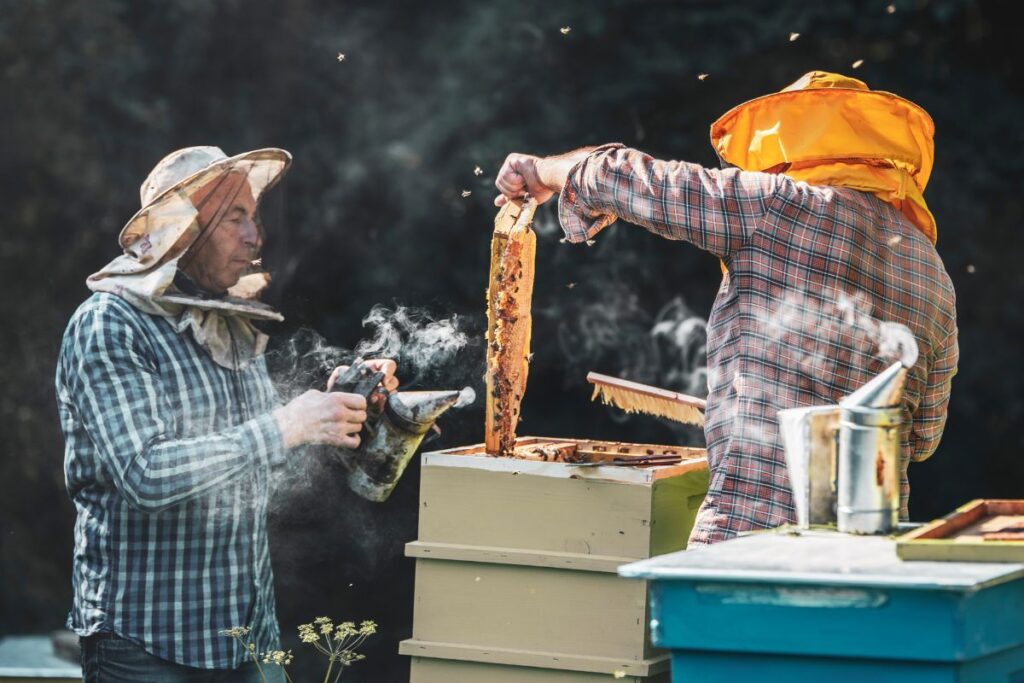
Invest in the Right Equipment & Gear
The right equipment is crucial for successful beekeeping. Protective clothing such as a bee suit or veil will keep you safe from stings while handling your hive. Tools like smokers, hive tools, and frames make maintenance tasks easier and more efficient. Materials like sugar syrup, fondant, and pollen patties are important food sources for your bees during times when natural nectar is scarce.
Investing in quality equipment from reputable suppliers can save money in the long run by providing longer-term use than cheaper alternatives. However, it’s important not to overspend on unnecessary items when starting out.
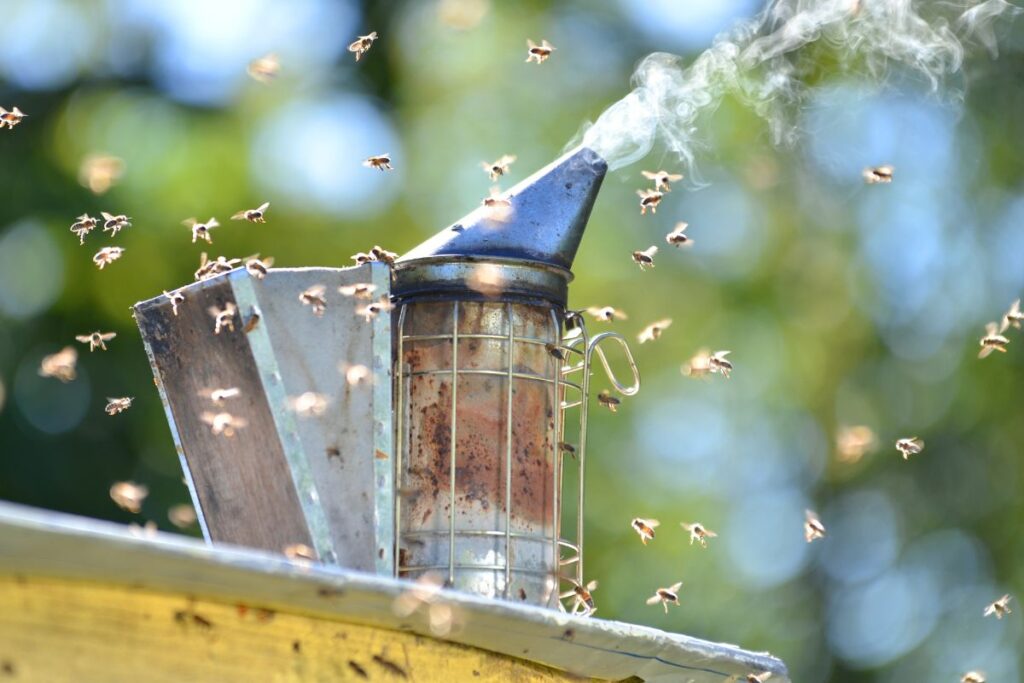
Understand Local Regulations
Before making your first purchase, make sure you understand local regulations regarding beekeeping. Different regions may have different rules governing the number of colonies allowed on a given property or any restrictions on where hives must be located. Following these rules is crucial not only to avoid legal trouble but also to maintain good relationships with neighbors who may be affected by your bees.
Take A Beekeeping Class
Taking a beekeeping class is an excellent way to learn hands-on skills and techniques from experienced beekeepers. You’ll also have the opportunity to network with other enthusiasts in your area who can provide support throughout your journey. The best places to find classes are through your local beekeeping association, your local beekeeper, or even your local cooperative extension office. If you have no sources locally, there are many online classes and courses to choose from.
Classes can cover various topics such as hive maintenance and honey production or identifying and treating common bee diseases. Investing in a class can help ensure that you have the knowledge and confidence needed to become a successful beekeeper.
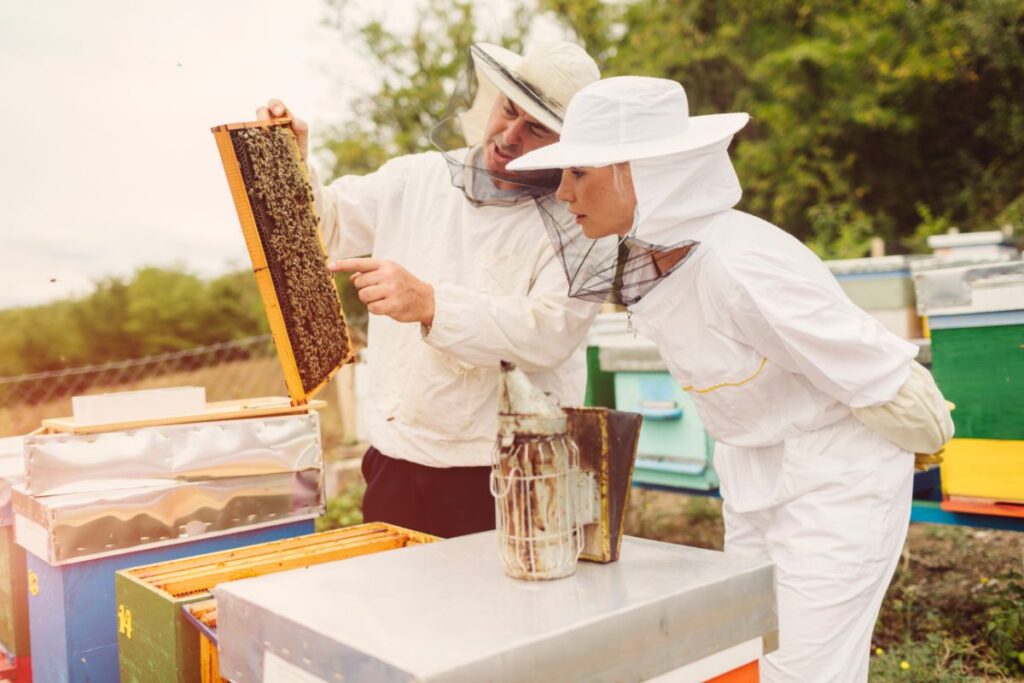
Beekeeping can be an enjoyable and rewarding hobby that also supports pollinator populations. To get started as a beginner beekeeper, do your research on different types of beekeeping. Invest in quality equipment from reputable suppliers but avoid overspending on unnecessary items.
Understand local regulations regarding beekeeping before starting your own apiary, and take a class if possible to learn hands-on skills from experienced beekeepers while networking with others who share similar interests.
With these tips in mind, you’ll be well on your way to becoming a successful beekeeper!
